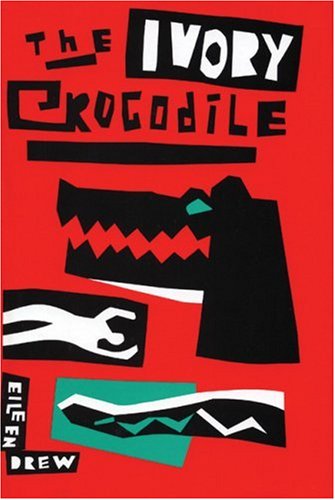
Set in the fictional Central African country of Tambala, this engaging first novel is narrated by Nicole, a young American whose naive idealism collides with the realities of postcolonial, post-Cold War Africa. Recent college grad Nicole decides to return to the continent in which she was raised when her father was a government employee in Guinea. She signs on as a teacher of English in AfricEd, a Peace Corps-like organization. Her journey into the heart of Tambala turns into a hard road to maturity. Ultimately, this is a novel of disillusionment as Nicole's initial desire to be accepted by the Tambalans yields to her increasing awareness of her own "otherness" and inability to affect change in her adoptive village. The teacher she falls in love with is really an Angolan freedom fighter; the young girl she nurtures as her assistant in a family-planning clinic becomes pregnant. The American idealist thwarted by an un-ideal world is not a new story, but Drew carefully articulates the complexity of managing cultural differences, and she understands?but does not herself succumb to?the romantic temptations that initially mislead Nicole.
Copyright 1996 Reed Business Information, Inc.
YA. Nicole Spark spent her childhood in Africa as the daughter of an American diplomat, and she longs to recapture the nostalgia that overtakes her following her mother's death, her brother's wanderlust, and her father's withdrawal. After graduating from college, the young woman travels to Mampungu, an isolated bush post in fictional Tambala, as an English teacher with AfricEd. She wants to become a part of the native people but cannot escape her white skin and her Western heritage. She meets Mitch, a burly medic employed by an American contractor; Bwadi, another teacher who cannot escape his Angolan past; Diabelle, a young student who strives for the freedom that Nicole exudes. Nicole urges her to reach for more than a future as a village wife and involves her in a Family Planning Project that promises a future job in the city of Kimpiri. When Diabelle becomes pregnant, she overdoses on chloraquine and dies. Nicole leaves Africa, a wiser, more mature young woman. By looking at African life through a Western eye and questioning what is seen and experienced, Drew lends immediate understanding to why it is impossible to force one person's culture onto another individual's way of life.?Dottie Kraft, formerly at Fairfax County Public Schools, VA
Copyright 1997 Reed Business Information, Inc.
Born and raised in Africa, Nickie Spark vows to return after her father quits the foreign service and brings his family to the U.S. She fantasizes about the Africa of painted faces, native rituals, and villagers dancing to drums. Entering a foreign service organization herself after college, Nickie is assigned to a school in a central African nation called Tambala. She works immediately to offset any stigma attached to being a white American by socializing underneath a mango tree with Mpovi, the school principal's wife; donning a pagne, which all the women wear; and singing with the local choir. She also assists with a birth control survey at the clinic. Yet, things fall apart: her protective counseling of the fetching student Diabelle backfires with Diabelle's pregnancy, and her challenging relationship with Bwadi, an Angolan refugee, leads to the theft of her beloved camera. She comes to realize that her romanticized sense of the continent is as false and hollow as the ivory crocodile knickknacks she once treasured. Jennifer Henderson
Most helpful customer reviews
See all customer reviews...
No comments:
Post a Comment